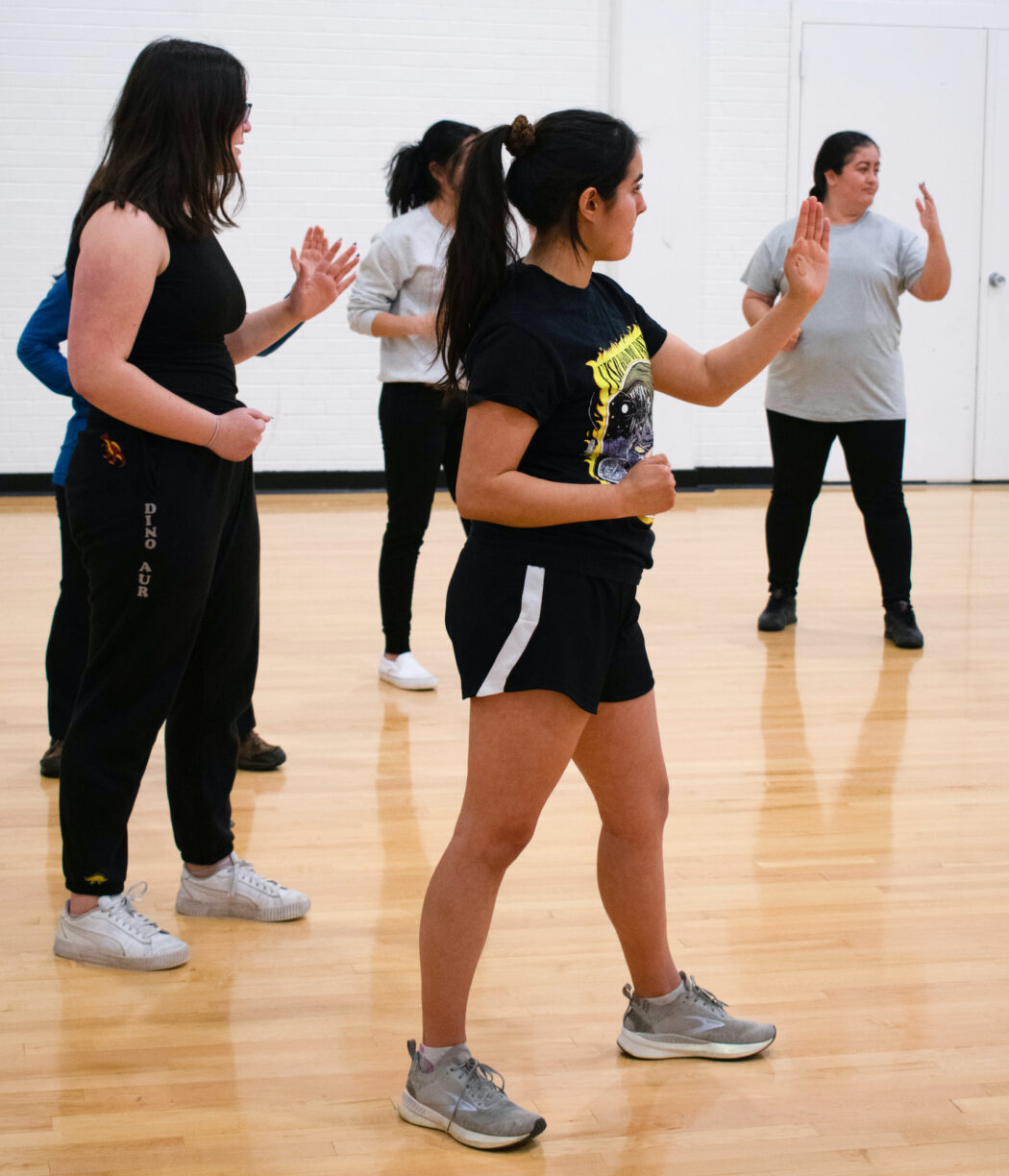Campus Recreation provides self- defense classes for the community
Have you found yourself in a situation when you felt unsafe and wished you knew how to defend yourself?
Utah State University offers self-defense classes meant to help those who seek skills to protect themselves.
Katie Burns, the associate director of campus recreation, teaches and organizes these classes alongside Amanda Bray, the assistant director of healthy lifestyle programs and community engagement.
“R.A.D. stands for rape, aggression, defense, and it was started in 1989,” Burns said. “And it is an international program.”
R.A.D. classes are offered at universities and in communities all around the world.
These classes have been offered regularly at USU for academic credit, and two classes are offered every semester, listed as PE 1407.
USU’s R.A.D. classes are a cooperative effort between Campus Recreation and the police department. Officer Nick Bowman works with Burns and Bray to teach portions of the class.
Last summer, Campus Rec started offering weekly R.A.D. classes in the evening, open to students and anyone else in the community.
The classes currently take place once a week for two hours, over the course of five weeks.
“We wanted to provide more opportunities,” Bray said. “That is why we’re doing the evening classes now — that is open still to students and faculty staff as well as the community members. And the reason why we do this is because we think it’s such a great resource and tool for USU campus and surrounding community.”
The classes are currently open to those who identify as female, but they are working on developing a new version of the class open to those who identify as male.
Burns said the classes would be held separately with different curriculums, but would come together a few times for certain exercises.
“We’re working on developing a men’s version of the class,” Burns said. “Officer Bowman is going to lead the charge on what that looks like. So changing the curriculum a little — we certainly don’t want to live in a world of only women are victims and only men are attackers, because we know that’s not true.”
Ken Conroy, a student at USU, is registered for the current session of evening R.A.D. classes.
“I started to take this class because I’m a young woman who lives alone,” Conroy said. “I’ve been in some pretty scary situations myself where I kind of just froze, and I don’t want to feel like that ever again. I want to be able to defend myself if the situation ever arises.”
Those attending the class learned they have six weapons on them at all times — their voice, head, elbows, fists, knees and feet. The most important of these weapons is the voice.
“Women especially learn how powerful our voices are, and I think Hollywood makes us think when you get attacked, you either don’t say anything or don’t do anything, or you scream,” Burns said. “But the third option there would be yelling, which is different than screaming. And the power that we have just by yelling to get other people’s attention to get the help, we need to scare off a potential attacker.”
The class is taught both in the gym and in the classroom.
“The hands-on self-defense is just one piece of the class,” Burns said. “I think that when we think self-defense, we all think about throwing a punch or kicking or whatever, right? But so much of self-defense is thinking about, ‘What situations am I putting myself in before I get there?’ Not that we need to live in bubble wrap, but just knowing.”
Bray said R.A.D. is important because it provides more awareness for everyday life, taking care of yourself and having the resources to protect yourself.
“The biggest thing is awareness and noticing your own risk,” Bray said.
Burns and Bray said with the success of the current and previous evening classes, they are hoping to continue providing evening sessions open to the community.
Future evening R.A.D. sessions can be registered for online through the campus recreation portal recportal.usu.edu.
“We’re teaching you to be aggressive and defensive because you are number one — your safety is the priority,” Bray said.

